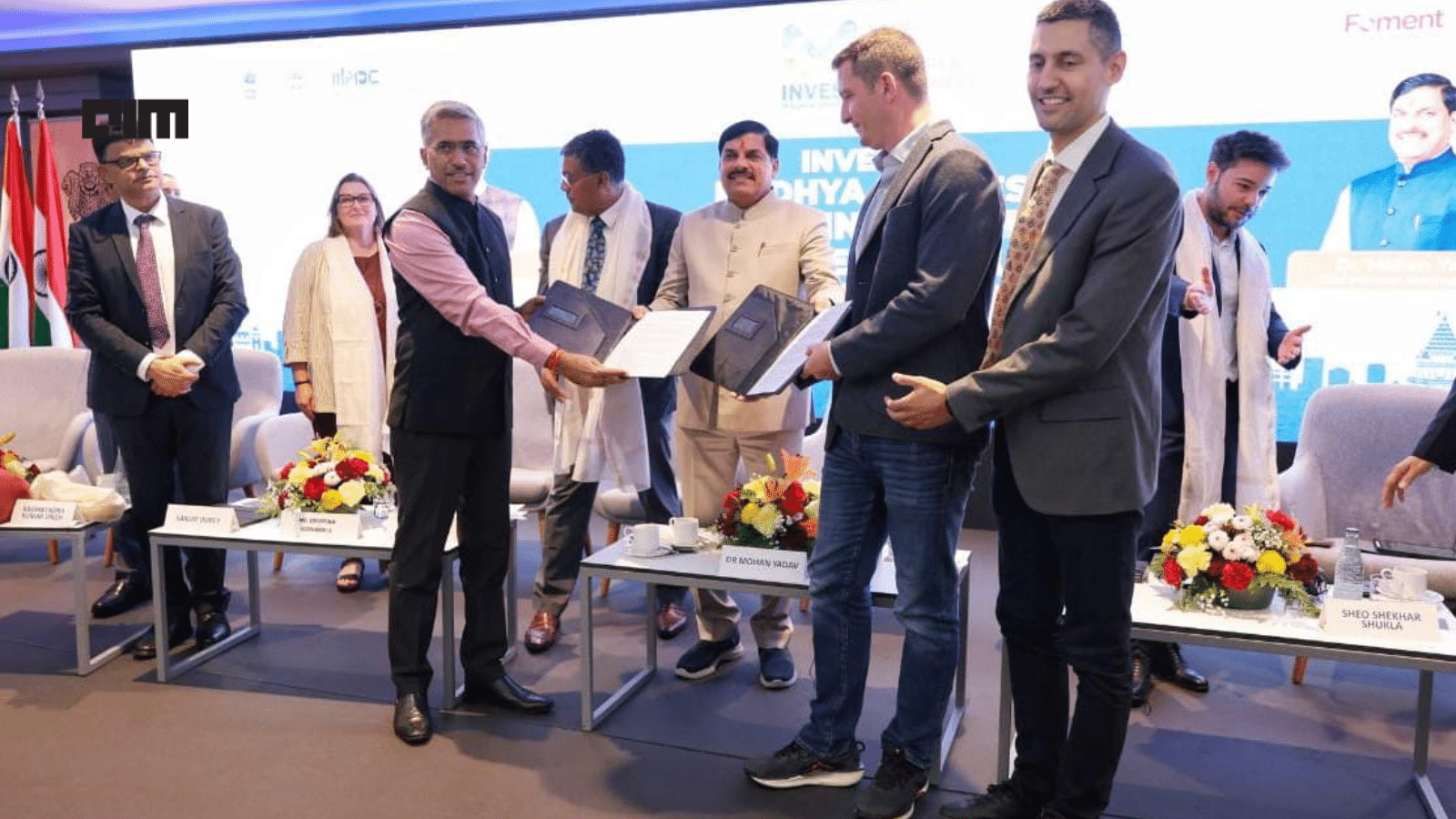AI in Travel
Min Yoon on WiT Seoul, rise of K-Tech and AI survival | Conversations On Turning 20

Min Yoon on WiT Seoul, rise of K-Tech and AI survival | Conversations On Turning 20
When you get to the ripe young age of 20, you’re bound to collect lots of stories – not only about the past but lessons for the future.
As WiT marks its 20th year in 2025, we turn the spotlight on our community, our tribe pioneers and leaders, to tell their stories and share their views on the evolution of online travel and technology.
We ask them to look back on the past and their early days, reflect on the present and why this moment is pivotal for online travel and get them to imagine the future, the next 20.
This special WiT Studio series, “Conversations On Turning 20”, is the collective story of WiT.
As a Chinese saying goes, 以古为鉴,可以知兴替
“By using history as a mirror, one can understand the rise and fall of things.”
Episode 15: Min Yoon, CEO, TIDESQUARE, Korea
In a wide-ranging conversation, Min Yoon, CEO of TIDESQUARE, reflects on his journey from travel outsider to insider, why he wanted to bring WiT to his country, the early days of South Korea’s online travel market, and what’s next in an AI-powered future.
Key highlights:
Early Days at WiT:
- Min’s first encounter with WiT was at the bootcamp in Singapore in 2013, a formative experience where informal connections and open sharing helped him understand the global travel landscape.
- He describes WiT as more than a conference: “It was like school – a real alumni network that shaped my learning.”
The Birth of TIDESQUARE:
- Founded in 2009 as a premium marketing agency, TIDESQUARE pivoted into travel through a partnership with a credit card company.
- Min shares how he built his OTA business from selling flights to expanding into hotels and activities, guided heavily by contacts and ideas from WiT.
Navigating the Black Box:
- In the early 2010s, knowledge about the global travel ecosystem was sparse in Korea.
- “It took me over a year just to map the supply chain,” Min says, describing how hard it was to even understand that companies like Agoda were part of Booking Holdings.
WiT Seoul: Jazz and a Dream
- The idea for WiT Seoul was born in a jazz bar, during a casual conversation with WiT founder Siew Hoon.
- “Let’s do it,” he said immediately, sparking what has now become a critical platform for Korea’s travel industry transformation.
- In 2016, WiT Seoul was launched. Nine years on, the event has grown to become the annual gathering in which Korea’s travel industry get together to discuss all things tech, and it’s also where startups and investors meet to influence the next wave in online travel.
The Rise of Global OTAs and Korea’s Response:
- Over the last decade, global OTAs entered Korea in force, pushing local players to evolve fast.
- Now, Korean companies like Yanolja and Good Choice are global players themselves, thanks to fierce competition and rapid tech adoption.
K-pop, K-drama, and K-Travel:
- The global popularity of Korean culture has supercharged inbound travel — from fans taking selfies outside Olive Young stores to surging demand for “K-cosmetic” tourism.
AI: A Game-Changer for Survival:
- Min believes embracing AI is non-negotiable for the next 20 years.
- TIDESQUARE is already implementing AI for customer service, marketing, and even coding projects — citing real-life examples where non-engineers now create automation tools with ChatGPT.
- “AI will change everything — from behind-the-scenes operations to customer-facing travel experiences.”
The Next 20: Space and Barrier-Free Travel
- Looking ahead, Min imagines a future where space travel and inclusive, barrier-free travel become normal.
- He hopes travel becomes “more accessible, empathetic, and ethical” for all.
AI in Travel
AI Travel Revolution: Must-Have Guide to the Best Experience
Experience the AI travel revolution firsthand as smart technology transforms trip planning into a personalized, effortless adventure. Discover how cutting-edge tools like cheQin.ai are reshaping the way we explore the world with tailored itineraries and real-time travel insights.

How AI is Changing the Way We Travel: The Next Frontier
Artificial intelligence (AI) is transforming nearly every facet of our lives, and travel is no exception. The integration of AI into travel technology is revolutionizing how we plan, book, and experience trips, offering smarter, more personalized, and efficient solutions. From virtual concierges to smart travel planning tools and cutting-edge innovations like cheQin.ai, AI is heralding a new era in the travel industry. This article dives deep into how AI is reshaping our journeys, what new tools are emerging, and what future trends travelers and businesses alike should watch.
A Look at New AI Tools Revolutionizing Travel
The travel landscape was once dominated by traditional agencies and manual planning, often resulting in generic recommendations and cumbersome booking processes. Today, AI tools are changing that narrative dramatically.
Innovative platforms like cheQin.ai exemplify these advances by leveraging machine learning algorithms and data analytics to provide highly personalized travel ideas. This technology can analyze user preferences, past travel history, and real-time factors like weather or local events to craft tailored itineraries. Such tools are not only improving convenience but elevating the quality of travel experiences by ensuring travelers make the most of their time and budget.
Beyond itinerary generation, AI-driven platforms are optimizing booking systems. By integrating natural language processing (NLP), many apps allow users to engage in human-like conversations, ask questions, and receive instant responses. This shifts travel planning from a tedious task into an interactive, enjoyable activity. Additionally, AI-powered price prediction models help users find the best deals by analyzing historical flight and hotel pricing trends, minimizing the guesswork and stress associated with last-minute bookings.
Virtual Concierges: The Rise of AI-Powered Travel Assistants
One of the most fascinating applications of AI in travel is the emergence of virtual concierges. These are AI bots or digital assistants embedded in travel apps and hotel websites, designed to offer personalized, real-time assistance.
Virtual concierges are capable of handling a variety of traveler needs: from restaurant recommendations and local attraction guides to booking transportation and answering common questions about travel policies. They provide 24/7 support without the wait times associated with human agents, making assistance accessible at any point during a trip.
For instance, AI virtual concierges can analyze a traveler’s preferences and dining history to suggest meal spots that fit dietary needs or highlight hidden local gems, enhancing authenticity in travel experiences. Hotels also deploy these assistants to streamline check-in/check-out procedures, provide room service requests, and offer customized wellness or entertainment options, thereby elevating guest satisfaction while reducing operational costs.
Smart Travel Planning: How AI Tailors Every Step of Your Journey
Smart travel planning powered by AI goes beyond mere itinerary building—it embraces a holistic approach to travel management. AI systems integrate multiple data points, including traveler behavior, transportation modes, accommodation availability, real-time traffic, and even social sentiment from travel communities.
By synthesizing this information, AI-driven smart travel planning can optimize routes for efficiency, suggest activities suited to the time of day or weather conditions, and create flexible plans that adapt if disruptions like flight delays occur.
Tools powered by cheQin.ai and similar platforms are advancing in predictive capabilities. For example, they can forecast tourist traffic, enabling travelers to avoid overcrowded sites or find alternative experiences. This adaptability ensures a stress-free and immersive travel experience tailored to an individual’s style—be it adventure, relaxation, cultural exploration, or culinary tourism.
Additionally, smart travel planning enables corporate travel managers to reduce costs and streamline logistics by automating expense tracking, itinerary synchronization, and compliance monitoring. This makes business trips more productive and less taxing on travelers.
Future Trends: What’s Next in the AI-Driven Travel Revolution?
As AI technology matures, the travel industry is poised to witness several exciting trends that will further redefine experiences:
Hyper-Personalization: Advanced AI will combine biometric data, social media activity, and environmental sensors to tailor every aspect of travel—from security screening to in-flight entertainment—creating seamless, unique journeys.
Augmented Reality (AR) and AI Integration: Travelers will enjoy AI-powered AR guides overlaying historical facts, navigation pointers, or immersive language translations onto real-world environments through smartphones or smart glasses.
Sustainability Focus: AI will help travelers make eco-conscious choices by recommending green accommodations, optimal travel routes to reduce carbon footprints, and real-time environmental impact tracking.
Voice-Activated Travel Planning: Building on virtual concierge systems, voice-activated AI assistants will become more conversational and context-aware, enabling effortless multi-step travel arrangements through speech.
Autonomous Transport: AI-driven autonomous vehicles and drones may become common for short-distance travel and parcel delivery, changing how tourists navigate destinations.
Blockchain and AI Synergy: To enhance security and transparency, AI integrated with blockchain technology could streamline identity verification and fraud prevention in travel transactions.
Why cheQin.ai is Leading the Charge in AI Travel Innovation
Among these emerging tools, cheQin.ai stands out for its cutting-edge application of AI to travel planning challenges. With a user-centric interface, it simplifies complex decision-making by curating personalized suggestions based on robust data inputs, continuously learning from user feedback to refine its recommendations.
Its ability to integrate data from diverse sources—including transportation databases, social reviews, local event schedules, and even weather forecasts—makes cheQin.ai a comprehensive travel planner capable of adapting to dynamic travel conditions.
Moreover, cheQin.ai emphasizes ethical AI use, focusing on transparent algorithms and data privacy, a vital consideration as travelers become more aware of how their personal information is handled.
Embracing the AI-Powered Travel Future
Artificial intelligence is unlocking unprecedented possibilities for travelers and the travel industry alike. By embracing new AI tools like cheQin.ai, virtual concierges, and sophisticated smart travel planning systems, we are moving toward journeys that are smarter, personalized, and more accessible. As these innovations continue to evolve, they promise to make travel not only easier but richer and more meaningful.
For travelers willing to explore this AI-driven frontier, the future holds more than just destinations—it offers intelligent experiences tailored uniquely to them, redefining what it means to explore the world.
AI in Travel
TripBooking.AI: Bangladesh’s first AI travel assistant is here!

In a small office in Banani, Dhaka, a team of Bangladeshi entrepreneurs have quietly built something that could change how millions of people travel. Their continued resilience in building Bangladesh’s first AI-powered travel assistant stands as proof that Bangladesh will not be left behind in the AI revolution.
The Journey to Innovation
TripBooking.AI’s story starts with three innovators – Prottoy Sen, Dipto Datta and Ahmed Ajmine. Prottoy Sen’s path to entrepreneurship began at Notre Dame College, before Chinese state scholarships took him abroad for undergraduate and master’s studies. He is one of the few Bangladeshis accepted into the prestigious MIT Bootcamp—an elite global entrepreneurship programme run by the Massachusetts Institute of Technology, USA. After gathering 15 years of experience from global tech giants like HP and Ericsson, he now resides in Australia—but his heart remains focused on solving problems back home.
“In a rapidly changing Bangladesh, where the population is massive and resources are limited, there are no alternatives to entrepreneurs,” says Prottoy.
This very philosophy sparked the idea for TripBooking.AI back in 2024, when Sen experienced the same frustration millions of Bangladeshis face while booking a trip. Spending hours calling travel agents, scrolling through countless Facebook groups and sending endless WhatsApp messages is often considered the norm for travel planning. Sen found the perfect partners in Dipto Datta and Ahmed Ajmine, fresh Computer Science graduates from North South University who shared his vision of modernising Bangladesh. Prottoy Sen brought a decade of experience at global tech giants and product vision, while Dipto and Ahmed led the AI innovation and technical development.
Together, they spent early 2025 building the final product—an AI-powered platform that transforms travel planning from a nightmare to a simple prompt for your AI assistant.
The AI Revolution in Your Pocket
The solution is “Zoe”—an AI assistant designed with a clean, modern interface and smart features to rival any international travel app. The process is simple: chat with your AI to curate your trip, then book on the go.
Ask Zoe about destinations, dates or budget constraints and she responds with curated travel packages from reliable partners at unbeatable prices. The founders believe that tomorrow’s travel landscape should not rely on endless phone calls with travel agents and Facebook searches.
What makes TripBooking.AI special is its deep alignment with the local market. Zoe, the AI assistant, has been carefully engineered to understand the needs, preferences, and travel behaviours of Bangladeshi users. The platform handles both international adventures and local tours with equal sophistication. It currently works with tour packages, with plans to launch hotels and flight bookings in the near future.
Inspiring a Generation
The world has not failed to take notice of a rumbling revolution. Amazon has accepted the entrepreneurial trio into AWS Activate, providing credits that can be used across more than 200 AWS services. Even more remarkable is their selection for Silicon Valley’s Founders Institute Core Programme, the world’s largest pre-seed accelerator that has helped over 7,800 entrepreneurs across 100+ countries raise over $1.85 billion in funding since 2009.
TripBooking.AI stands as proof that when global expertise meets local passion, extraordinary things can happen. Prottoy Sen’s journey from Notre Dame to MIT Bootcamp to Australia and back to Dhaka shows that bringing world-class innovation home isn’t impossible.
The founders’ ambitions extend far beyond Bangladesh’s borders. The company hopes to go global someday, turning their local solution into a worldwide movement. This isn’t just a Bangladeshi innovation—it’s a vision for the world. The founders imagine a future where any traveller, anywhere, can plan and book their dream trip just by having a conversation.
As the platform officially launches, these three entrepreneurs can inspire a generation to believe that in resource-constrained Bangladesh, entrepreneurship isn’t just an option, it’s the answer. Today, they’ve shown us what the travels of tomorrow will look like.
TripBooking.AI is officially launching on 20 July 2025. Whether you’re planning a weekend escape to Cox’s Bazar or a honeymoon in Bali, just tell Zoe—she’ll handle the rest. Visit TripBooking.AI to experience the future of travel planning today.
AI in Travel
MP Govt Signs Deal with Submer to Build Eco-Friendly AI Data Centres

The Madhya Pradesh State Electronics Development Corporation (MPSEDC) has signed a Memorandum of Understanding (MoU) with Spain-based Submer Technologies.
The agreement will pave the way for developing up to 1 gigawatt of next-generation, AI-ready data centre capacity in Madhya Pradesh, using Submer’s advanced cooling technologies. These technologies, like immersion cooling and direct-to-chip solutions, help save energy, reduce water usage, and lower the overall environmental impact of data centres.
“Following our visit to Submer’s facility, we are convinced of the potential for transformative collaboration. This partnership reflects our vision for sustainable technology, job creation, and positioning Madhya Pradesh as a preferred destination for global innovation,” Mohan Yadav CM, MP said.
The deal was finalised after a high-level visit to Submer’s innovation centre in Barcelona on July 17, 2025.
As part of the agreement, the MP government will support the project by helping with land allocation, approvals, and investment incentives.
On the other hand, Submer will offer expertise in design, training, and technical support to set up the facilities. The company’s solutions have already led to 600 GWh of electricity savings and saved over 3 billion liters of water worldwide.
“This MoU marks the beginning of a robust partnership that will catalyze local employment, skill development, and innovation while building scalable infrastructure for the AI era,” Sanjay Dubey,additional chief secretary of department of science and technology, GoMP said.
Submer’s leadership team is expected to visit MP later this month to explore potential sites and meet with local partners.
-

 Mergers & Acquisitions1 week ago
Mergers & Acquisitions1 week agoHow Elon Musk’s rogue Grok chatbot became a cautionary AI tale
-

 Mergers & Acquisitions1 week ago
Mergers & Acquisitions1 week agoAmazon weighs further investment in Anthropic to deepen AI alliance
-

 Asia Travel Pulse2 weeks ago
Asia Travel Pulse2 weeks agoLooking For Adventure In Asia? Here Are 7 Epic Destinations You Need To Experience At Least Once – Zee News
-

 Mergers & Acquisitions1 week ago
Mergers & Acquisitions1 week agoUK crime agency arrests 4 people over cyber attacks on retailers
-

 Brand Stories2 weeks ago
Brand Stories2 weeks agoVoice AI Startup ElevenLabs Plans to Add Hubs Around the World
-

 AI in Travel2 weeks ago
AI in Travel2 weeks ago‘Will AI take my job?’ A trip to a Beijing fortune-telling bar to see what lies ahead | China
-

 Mergers & Acquisitions1 week ago
Mergers & Acquisitions1 week agoEU pushes ahead with AI code of practice
-

 Mergers & Acquisitions2 weeks ago
Mergers & Acquisitions2 weeks agoChatGPT — the last of the great romantics
-

 The Travel Revolution of Our Era1 month ago
The Travel Revolution of Our Era1 month agoCheQin.ai Redefines Hotel Booking with Zero-Commission Model
-

 Mergers & Acquisitions1 week ago
Mergers & Acquisitions1 week agoHumans must remain at the heart of the AI story

You must be logged in to post a comment Login